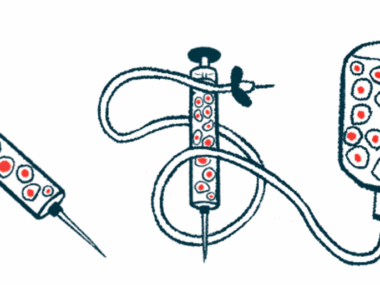FDA Places DA01, Cell Therapy for Advanced Parkinson’s, on Fast Track
Written by |

Rawpixel.com/Shutterstock
The U.S. Food and Drug Administration (FDA) has given fast track designation to the investigational cell therapy DA01, now in a clinical trial in people with advanced Parkinson’s disease.
Developed by BlueRock Therapeutics, a wholly owned subsidiary of Bayer, DA01 is made up of dopamine-producing nerve cells derived from human embryonic stem cells. These cells are pluripotent, meaning they can generate almost any type of human cell.
Transplantation of these cells aims to repopulate a patient’s brain with dopamine-producing neurons, those responsible for releasing the neurotransmitter dopamine and whose loss is a hallmark of Parkinson’s. The treatment’s goal to restore dopamine production and potentially reverse neurodegeneration.
Fast track status is given by the FDA to a therapy candidate intended to treat serious health conditions. The designation aims to accelerate the therapy’s development and expedite its approval by providing more frequent meetings with the FDA and discussions about the development plan.
“Receiving Fast Track Designation from the FDA is an important step, which will help us further accelerate clinical development of our DA01 cell therapy approach for Parkinson’s disease,” Joachim Fruebis, PhD, the chief development officer at BlueRock, said in a press release.
“This is another critical step in the BlueRock mission to create authentic cellular medicines to reverse devastating diseases, with the vision of improving the human condition,” he added.
DA01 is being studied in a Phase 1 clinical trial (NCT04802733) now enrolling up to 10 patients. Participants will receive DA01, surgically transplanted into the putamen (a brain region heavily affected in Parkinson’s) while under general anesthesia.
Its main goal is to evaluate DA01’s safety and tolerability for one year after a patient’s cell transplant. Additional goals include the transplanted cells’ ability to survive, changes in patients’ motor abilities at one and two years post-transplant, and continued safety assessments over two years.
Adults eligible for this study are those who have been living with Parkinson’s for five to 15 years, and are being treated with levodopa but experience complications, such as wearing off or dyskinesia (uncontrolled, involuntary movements). Eligibility ages are 60 to 76 in the U.S., and 50 to 76 in Canada.
The trial is currently enrolling at Weill Cornell Medical College in New York, and at University of California Irvine. A third clinical site in Canada, the Toronto Western Hospital, is soon to begin recruiting. More site information and contacts can be found here.



